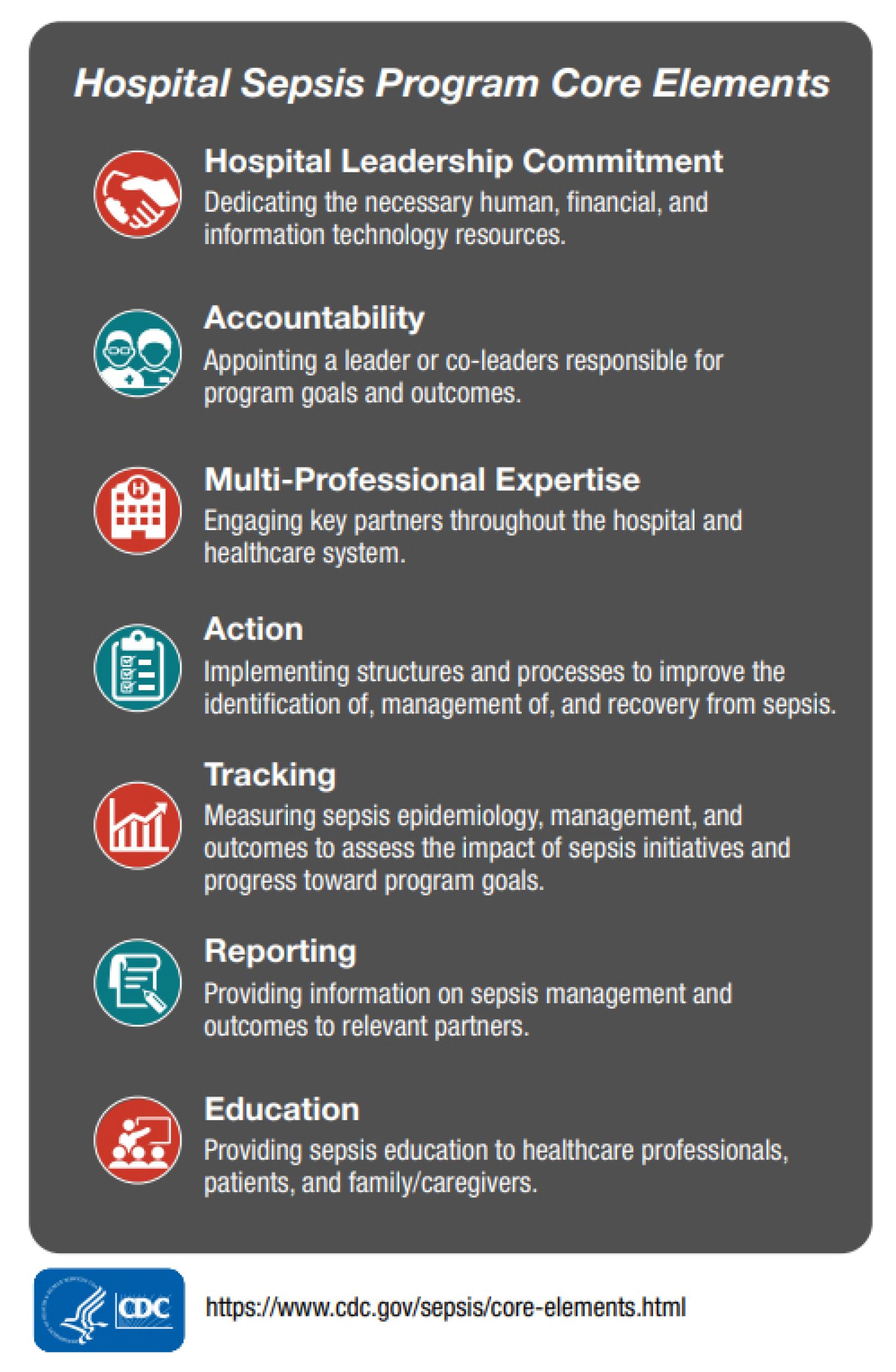New CDC guidelines, Massachusetts public awareness campaign for Sepsis Awareness Month

Source: U.S. Centers for Disease Control and Prevention
September is Sepsis Awareness Month and efforts continue nationwide and in Massachusetts to improve the early detection and treatment of this serious condition.
New data from the U.S. Centers for Disease Control and Prevention show that in a typical year, one in three people who die in the hospital had sepsis during their hospitalization. And, although 73% of hospitals in the U.S. have sepsis teams, the survey found that only 55% provide team leaders with dedicated time to manage sepsis programs.
This month, the CDC released a set of guidelines and tools called the Hospital Sepsis Program Core Elements. This new resource is intended to help hospitals implement, monitor and optimize sepsis programs and improve survival rates.
In Massachusetts, a collaboration of more than 25 health care organizations, the Massachusetts Sepsis Consortium, produced recommendations for two settings where early recognition of sepsis can be critical: emergency departments and post-acute care.
For the fifth consecutive year, the Consortium will also recognize Sepsis Awareness Month by leading an online public awareness campaign called Sepsis Smart. Ads in both English and Spanish aim to educate residents in the Commonwealth about the symptoms of sepsis and encourage people to seek medical care when an infection is getting worse or isn’t getting better. In 2022, the ads reached more than 300,000 individuals across Facebook and Instagram.
A national survey to gauge the public’s familiarity with sepsis and its symptoms, sponsored by the Sepsis Alliance, indicates that more than 30% of people have never heard of sepsis and only 15% can name its most common symptoms. In addition, the survey found that those who identify as white are significantly more likely to be aware of the term sepsis (73%) than those who identify as Black (40%) and those who identify as Hispanic (41%).